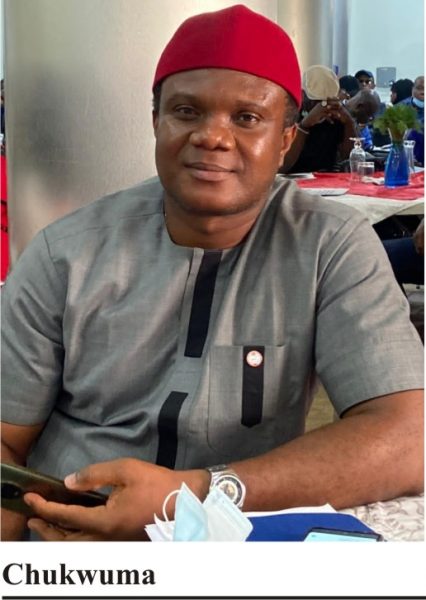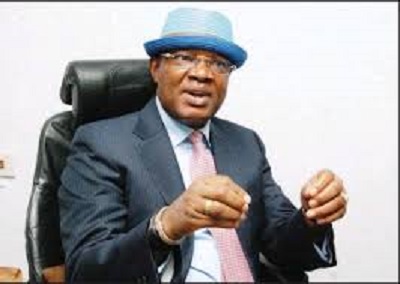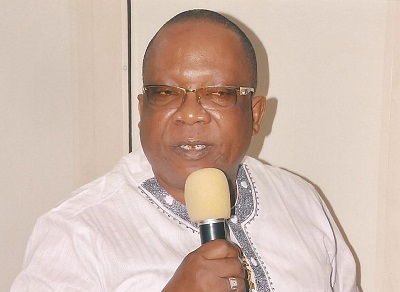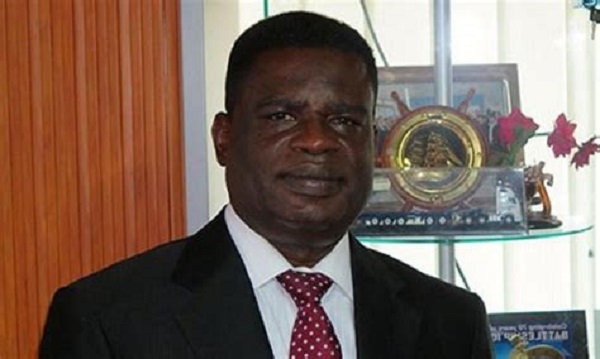New CRFFN Governing Board Must Perform Differently – Chukwuma
By Kenneth Jukpor
Chief Afam Chukwuma is the Deputy National President of Seaports at the National Association of Government Approved Freight Forwarders (NAGAFF). He is also the Managing Director of International Supply Chain Limited. In this exclusive interview with MMS Plus newspaper, he sets an agenda for the newly inaugurated Governing Board of the Council for the Regulation of Freight Forwarding in Nigeria (CRFFN). Chukwuma also identifies factors limiting automated operations at ports and provides counsel on developing indigenous production.
Excerpts:
What are your expectations from the newly inaugurated governing board members of the Council for the Regulation of Freight Forwarding in Nigeria (CRFFN)?
We would always expect to see the better results and significant improvements from the last administration. Sincerely the previous boards not just the immediate-past board, didn’t perform satisfactorily. It will be self deceit to say that any of the previous boards have done well.
All freight forwarders in the country as looking up to CRFFN to see massive improvement in regulations and massive policy framework around the issues affecting the freight forwarding sector. We want to have an organized freight forwarding sector that practitioners can be proud of. We look at the Nigerian Bar Association (NBA), Council for Regulation of Engineering in Nigeria (COREN) and a lot of other professional bodies that people can hold their head on high to say they are members of such associations.
When you travel outside the country, you see freight forwarders who are our peers and you immediately spot the high regard the have for themselves and their nation accords them respect. These practitioners are so proud to be freight agents. In Nigeria, freight forwarders need the board to play a crucial role for CRFFN to achieve the purpose for which it was established in the first instance.
It’s only through this governing board where you have the real representation of freight forwarders not the ministry or the one headed by the Minister of Transport or the Permanent Secretary, that we can expect robust policies to reposition the industry.
The previous CRFFN governing boards have failed, so, our expectation is that with the kind of quality representatives we have at this time will herald a new era in the industry.
The results a team can produce to a large extent depends to its leader and the Minister of Transportation, Hon. Rotimi Amaechi has appointed the governing board chairman in the past instead of allowing elections or consensus. What’s your opinion on this?
The Minister should allow members of the board to select their leader. This interference by the Minister has been happening over the years and perhaps that is why the governing board of CRFFN has not succeeded. It is common sense that if we do same thing all over we will get the same results. For once, let’s do things differently.
In recent times, we have seen new customs automated processes like; e- customs, VIN valuation, customs modernization, among others. How would you rate this development?
I always give kudos to customs when it comes to deploying electronic and digital approaches for their transaction and going paperless in their processes. I believe so strongly that among all government military and paramilitary agencies, Customs is the only place you see this level of electronic processes and automation.
So, this innovation is a highly welcome development. Nevertheless, the outcome of the process is where the issue is. The automated process in itself which means electronic, having your value digitally computed is fantastic but, when the consequence of that is hike in prices, hike in custom duties or other levies, then it becomes problematic.
Is there a way we can have these automated processes without necessary hiking the price? That will be the best because we are talking about 24 hours or 48 hours cargo clearance. We are also talking about automation, seamless processes, paperless operations and other approaches that make things work fantastic. If these automated systems bring further hardship to the people, of what essence will is the innovation?
Look at the VIN valuation process that has been reintroduced by Customs, when Customs called us to discuss it, there was no form of contribution or interaction because they had already taken their decision. They only invited practitioners to inform us of their decisions. It wasn’t a consultative meeting because they didn’t seek our opinion. However, we will not fail to point out the things we believe should be corrected.
If there must be increment, it should be very gradual so that people will not kick against it. Besides, the argument that the NAC levy is design to discourage importation and encourage local production is a fantastic idea.
The question now is what facilities have the government but in place to ensure smooth local production? All well-meaning Nigerians agree that the country should move from consumption to production, importation to exportation; fantastic that’s what we want. We also want a situation where Nigeria will have self-sufficiency in production of vehicles, rice and other major commodities.
Besides creating jobs, indigenous production also reduces security challenges as the nation’s youth will be positively engaged. To encourage production, the government has to fix some key infrastructure such as: power supply or energy, solving insecurity problems, unemployment, and poor transportation system, among others. We need to solve these issues so that by the time we ban certain importation, we can be sure that the local production can give us the desired results.








